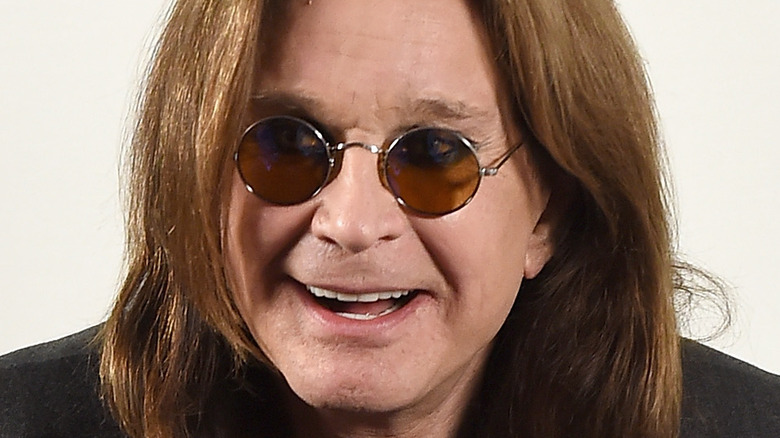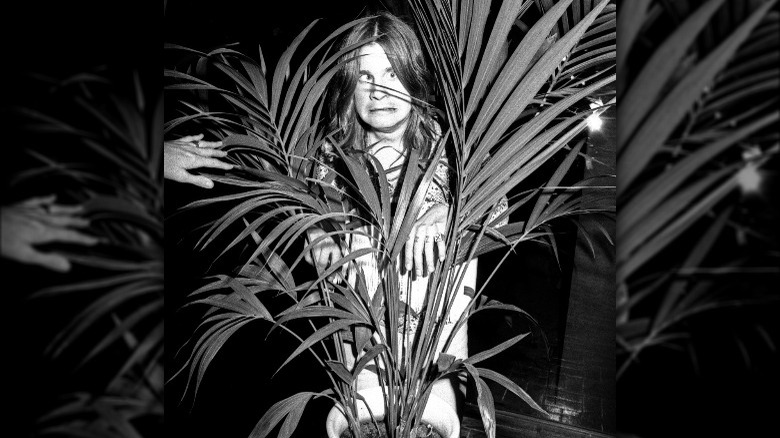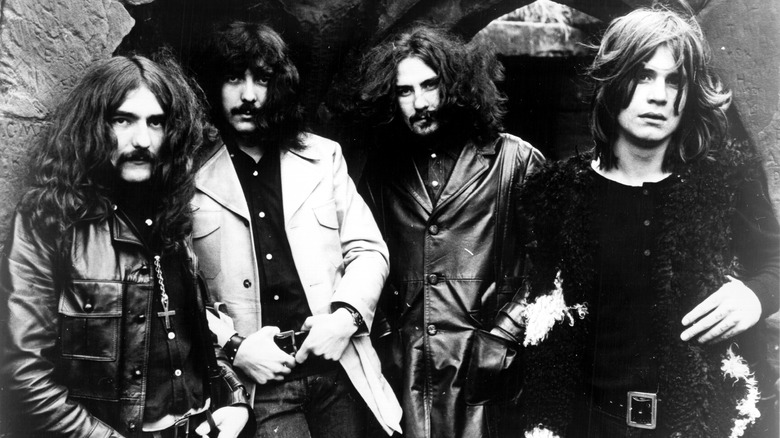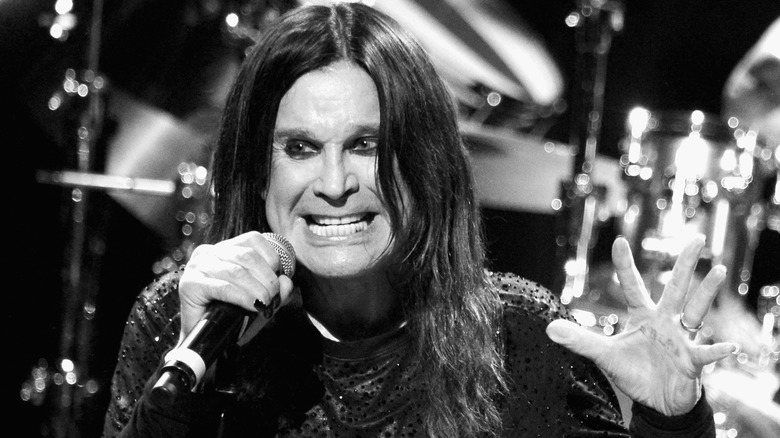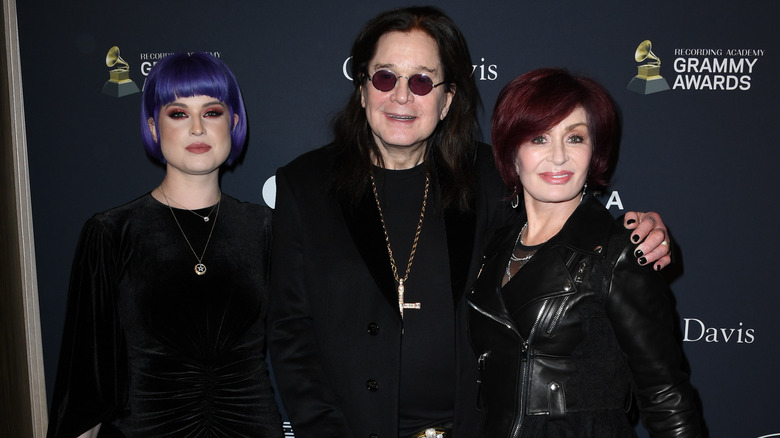Legendary Frontman Ozzy Osbourne Dead At 76
On July 22, 2025, the world bid a sad goodbye to one of the most recognizable faces and voices in metal history, the prince of darkness himself, Ozzy Osbourne (via Sky News). He was 76.
Without a doubt, Ozzy Osbourne was one of the most well-known and widely-discussed, influential and unique, at times controversial, and improbably long-lived faces and voices in all of modern music. As lead singer and one-fourth of heavy metal progenitors Black Sabbath, Ozzy helped launch not only an entire family of rock-and-roll, but also much of the dark, religious-themed aesthetic and themes that go hand-in-hand with metal's history. Ozzy's schticky, faux-Satanic, leather-and-drugs public persona — and plenty of illicit substances — carried him through his time in Sabbath, his solo career in the 1980s, back to Sabbath in the 1990s, and all the way through his late life. All in all, Ozzy's impact on future generations of musicians went far, far beyond his three Grammys (per Grammys) and 120 million collective records sold (over 70 million with Sabbath, per Official Charts, and over 51 million solo, per Chart Masters).
Ozzy's family released the following statement via Sky News: "It is with more sadness than mere words can convey that we have to report that our beloved Ozzy Osbourne has passed away this morning. He was with his family and surrounded by love."
A troubled youth who turned to music
John Michael Osbourne, aka Ozzy Osbourne, was born the fourth of six children to a working-class family in Birmingham, England in 1948, as Biography states. At home, Ozzy said that his father was "pretty English and stoic" (via Rolling Stone), while at school Ozzy was bullied in ways that he would never fully explain, but simply called "terrible," as a mini-biography on YouTube cites. He was also severely dyslexic, to the point where he dropped out of school at 16 years old. At the time he tried his hand at odd jobs, like working at a slaughterhouse, and was eventually sent to prison for burglary.
Throughout his early life, Ozzy fostered a deep love of music. When he heard "She Loves You" by the Beatles, he said, "My world went up like a shooting star. It was a divine experience. The planets changed." When Ozzy got out of prison, he turned to singing and started looking for bands to join. Through the most unlikely and ridiculous choice possible — an ad in the window in Ringway Music shop in Birmingham that said nothing more than "Ozzy Zig Needs Gig" — Terry "Geezer" Butler, Black Sabbath's future bassist and then "trainee accountant," knocked on Ozzy's door. As Loudersound continues, they teamed up with jazz drummer Bill Ward, guitarist Tony Iommi who'd lost two of his fingertips in a sheet metal factory accident, and bam: the future Black Sabbath was born.
The prince of darkness cometh
With Ozzy on the vocals, Black Sabbath went through a couple of band names before settling on their iconic, devilish moniker. Back in the late 1960s, as Biography says, they originally called themselves the utterly-incongruous-to-the-present "Polka Tulk Blues." They started doing local shows and changed their name to "Earth," but when they realized that Earth was taken, settled on "Black Sabbath" after the 1963 Boris Karloff film. At the time, Iommi was inspired by a horror film playing at a nearby theater, and said, "Maybe we should stop doing the blues and write scary music instead," as Loudersound explains. Come 1970, the band released their first album, "Black Sabbath," under Vertigo Records, with track names like "The Wizard," "Evil Woman," and "Wicked World." At that point, Ozzy and the band's path were pretty much laid out.
Even though Sabbath's first two albums sold well and got decent airplay, it took until their fourth album, "Sabbath Bloody Sabbath" (1973), for critics to jump on board and hail the work a "masterpiece" and "essential to any heavy metal collection," as Landmark Recovery explains. Sabbath's renown grew over the subsequent years, and with it, substance abuse problems. Ozzy, in particular, struggled during recordings and live shows. Following the release of 1978's "Never Say Die!," rifts in the band grew to the point where Ozzy was fired for his addictions. Ironically, it was this departure from Sabbath that elevated his career to its highest points of success.
Solo outings, substance abuse, and Ozzfest
Ozzy's fame ballooned in the 1980s rather than waned, putting his wildest highs and lowest lows on full public display. His debut album, 1980's "Blizzard of Ozz" — a clever name-focused branding exercise as much as a musical outing — featured breakaway hits "Crazy Train" and "Mr. Crowley." During this time Ozzy leaned heavily into his "Satanic" image, down to his album covers, and at the same time ramped up the intensity of his live performances.
Ozzy's substance abuse issues ran amok during the '80s, too, as he explained on Landmark Recovery. He wore his body down bit by bit and nearly ruined his voice. He was using cocaine, morphine, alcohol, and tobacco — "kilos of the stuff every week" — he stated, "By far the most addictive thing I've ever put in my body is tobacco." The arguable heights of this drug-fueled period came with his infamous "biting the head off a live bat" incident on stage in 1982, recounted by Rolling Stone, which he never managed to live down for the rest of his life.
By the time the 1990s rolled around, Ozzy branched out into musical patronage with Ozzfest, a metal-based, anti-Lollapalooza conceived of by Ozzy's wife, Sharon Osbourne, as Loudersound explains. Ozzfest kicked off in 1996, and has featured practically every prominent metal band under the sun, including Slayer, Pantera, Marylin Manson, Tool, Megadeth, Motorhead, System of a Down, Disturbed, Slipknot, Linkin Park, Meshuggah, Judas Priest, and Iron Maiden: you name it.
Family man and reformed substance abuser
Ozzy's later life took a couple of unexpected, odd turns, such as when he and his family became the subject of the reality TV show, "The Osbournes," in 2002, featuring Ozzy, his wife Sharon, and their children Jack and Kelly, as Biography outlines. The show, which definitely put a comical spin on the Prince of Darkness, lasted for a mere three years, but it was the pathway not only for Ozzy and Black Sabbath to reconcile, but Sharon and Kelly to pursue their own celebrity careers. Following the final year of the show in 2005, as Biography states, Ozzy reunited with Black Sabbath for a tour, which paved the way for a final Sabbath album, 2013's "13," and a final Sabbath tour in 2017.
Ozzy and Sharon met back in 1970 and got married in 1982, as Us Magazine says. Sharon became Ozzy's manager that same year, and has to be credited not only with keeping Ozzy's career together, but getting him into rehab and holding his entire life together for nearly 40 years, as Loudersound and Landmark Recovery discuss. Besides their two biological children, Ozzy and Sharon adopted a third child, Aimee, who chose to not partake in "The Osbournes." Ozzy also has three children from his previous marriage to Thelma Riley, from 1971 to 1982, two of which are theirs, and one of which is from Riley's previous marriage. Ozzy is survived by these six children as well as his wife Sharon.
